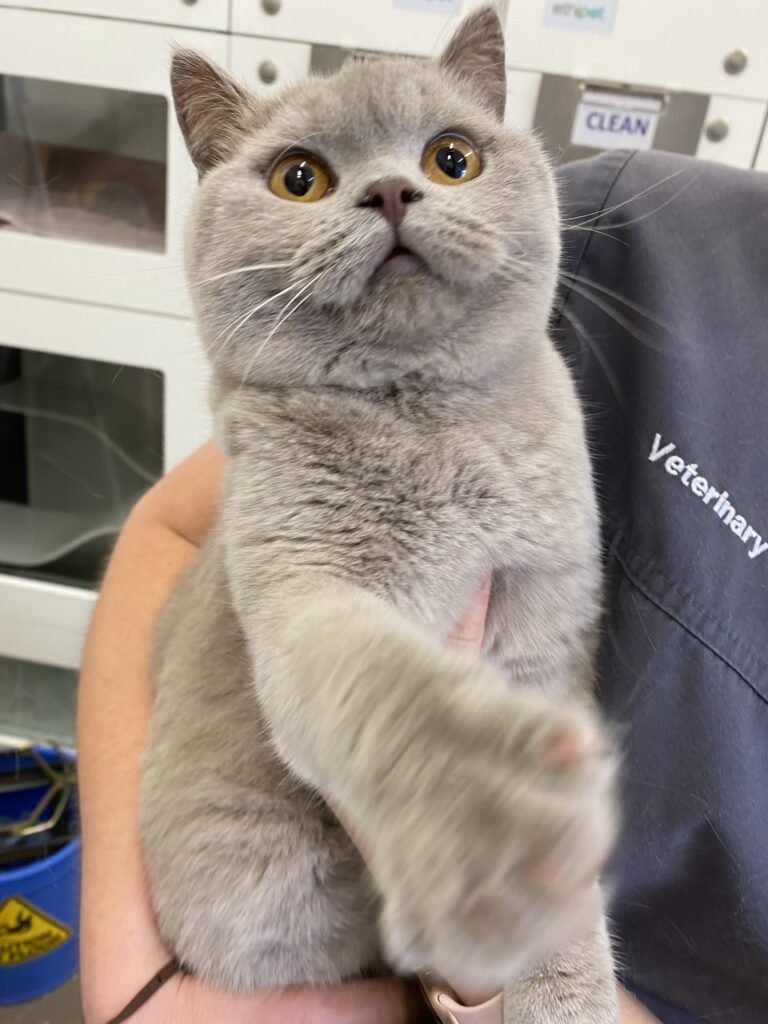
Welcome home kitten!
What an exciting time in your household – a new kitten! It can be a fun, but scary time adjusting life with your new kitten. It takes time, patience and most importantly – the right knowldge and tools! We’re here to help you navigate this experience, and ensure your kittten grows up to be healthy, well behaved happy.
Vaccination
Your kitten requires a series of injections to protect them from potentially fatal viral and bacterial diseases – Herpes virus, Calicivirus and Feline Parvovirus. They need the three boosters to ensure the highest protection against these diseases.
| 6-8 weeks | F3 (Herpesvirus, Calicivirus, Feline Enteritis Virus) |
|---|---|
| 12-14 weeks | F3 |
| 16-18 weeks | F3 |
After the 3rd vaccination, ongoing vaccination is recommended once a year at your cat’s annual health check.
Worming
Worms can kill kittens, and are transmissible to humans, especially children. Cats become infected with Roundworms when they consume infected worm eggs from soil in the environment (generally through normal grooming), nurse from an infected mother, or consume a prey animal (usually rodent) that is carrying developing worms. Other intestinal worms include whipworm, tapeworm and hookworm.
Anti-parasitic medications for kittens and annual faecal exams for adult cats can reduce environmental contamination and the risk of human infection.
We recommend worming every 2 weeks until 12 weeks of age, then monthly until 6 months, then every 3 months. We recommend:
- Milbemax – a tablet that covers all intestinal worms and heartworm
- Revolution – a monthly topical spot-on application that covers fleas, intestinal worms and heartworm
- Bravecto Plus – a two monthly topical spot-on application that covers ticks, fleas, intestinal worms and heartworm
Heartworm
Heartworm disease is more common in dogs, but cats can become infected if bitten by a mosquito carrying the immature heartworm. Signs of infection vary, and include sudden death. Revolution is a monthly topspot preparation that prevents heartworm, kills fleas, flea larvae and flea eggs, kills ear mites, and controls roundworm and hookworm. It is a very good parasite control product for cats.
Flea & Tick Control
Fleas are small parasites that infect cats, causing itching and inflammation. Cats may become infected with tapeworms when fleas are ingested while grooming. There are two types of flea products – insecticides and insect growth regulators. Insecticides kill fleas whereas the regulators prevent fleas from breeding.
Paralysis ticks are present in the Mosman area all year round, however the typical ‘tick season’ extends from September through to April. We recommend year round protection as we often see cases through winter. The tick injects a toxin which causes paralysis starting in the hindlimbs and which progresses to affect the whole body. Affected cats also have breathing problems, and sometimes gagging or retching.
Flea & tick control can start from a young age, with many options available. We recommend starting these products as soon as possible to reduce the risk of infection and further illness. These products are:
- Bravecto Spot On – a 3 monthly topical spot on treatment that protects against fleas and ticks
- Revolution Plus – a monthly topical spot on treatment that protects against ticks, fleas and all worms
- Seresto collar – a medicinal collar that protects against ticks and fleas that lasts for 8 months
No tick prevention is 100% effective, so we strongly recommend daily, all over inspections to reduce the risk of your pet developing tick paralysis.
Microchipping & Registration
Microchipping is a mandatory, permanent form of identification. It is a small implant that is inserted under the skin in between the shoulder blades. It is about the size of a grain of rice. It can be carried out at any age, but in NSW, all cats and dogs must be microchipped by 12 weeks of age or before being sold or given away.
Once you receive you kitten, go to the NSW Pet Registry website and create a profile for yourself. You can then search your kittens microchip number, and ‘claim’ them as your own. From here, you can update any contact information, and complete their lifetime registration. Cats must be registered with your local council by 4 months of age. This is generally when we desex kittens, and once this is done, a discounted registration fee will occur.
Learn more about microchipping and registration
Desexing
Males and females can be desexed from 8 weeks of age. This is a simple procedure that involves removing the testicles (in a male) and the ovaries and uterus (in a female). The operation can be performed any weekday, and cats go home the same day.
Females can come onto heat from 6 months of age, and males tend to start spraying and other territorial behaviour from about this age. Desexing can help with these behavioural issues, and will certainly eliminate the risk of any unwanted pregnancies.
Desexing also has many medical benefits such as the reduction of certain tumours and infections.
Diet
Your kitten has very unique nutritional needs from an adult cat, dogs and even humans! They benefit the most from a balanced high quality diet such as Hills Science Diet or Royal Canin – a mix of wet and dry food will keep your kitten satisfied. From about 12 months of age, you kitten can transition to a suitable adult food.
Most cats are actually lactose intoleratant, so feeding them cows or ‘kitten’ milk from the supermarket can cause more harm than good. A high quality, balanced diet is all your kitten will need, as well as access to fresh water.
Nutrition advice from Mosman Vet
Last updated on 22 February 2022
Tagged with: desexing, fleas, heartworm, kittens, microchipping, nutrition, ticks, vaccination, worming


